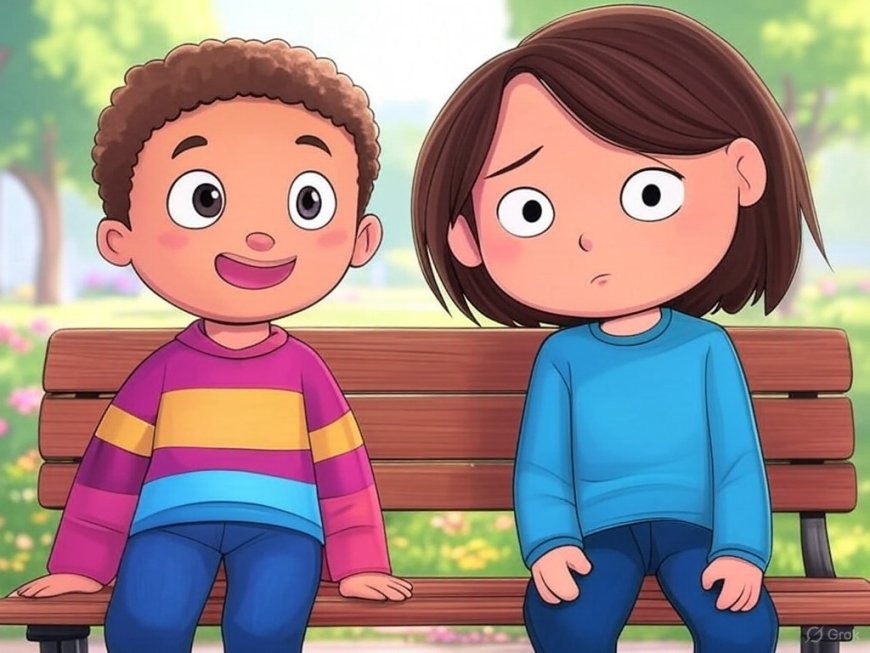One-Sided Friendships: How to Spot Them & What to Do About It
Tired of feeling like you're the only one putting effort into a friendship? Learn how to identify and handle one-sided friendships to protect your emotional well-being.

Introduction
Friendships are meant to be mutual, built on trust, respect, and support. But what happens when the effort seems to be coming only from one side? If you constantly feel like you're the only one making plans, checking in, or offering support, you may be stuck in a one-sided friendship.
These imbalanced relationships can leave you feeling unappreciated, emotionally drained, and even questioning your self-worth. Understanding the signs of a one-sided friendship—and knowing how to handle it—can help you protect your energy and prioritize healthy, fulfilling relationships.
Let’s explore how to recognize an unbalanced friendship and, more importantly, how to navigate it.
Signs of a One-Sided Friendship
A friendship becomes one-sided when one person consistently puts in more effort while the other barely reciprocates. If you recognize these signs, it might be time to re-evaluate your friendship.
1. You're Always the One Reaching Out
Do you feel like you’re always the one texting first, making plans, or checking in? A healthy friendship involves both people putting in the effort. If you disappear for a while and your friend doesn't even notice, it could be a red flag.
2. They Only Reach Out When They Need Something
Does your friend suddenly become responsive when they need a favor, emotional support, or a place to crash? If they only come around when it benefits them but disappear when you need them, you're likely in a one-sided friendship.
3. Conversations Revolve Around Them
When you talk, does your friend always steer the conversation toward their own life, struggles, or accomplishments? Healthy friendships involve mutual sharing. If they rarely ask about you or seem uninterested in your life, it’s a sign they may not value your presence as much as you value theirs.
4. They Don’t Support You in Tough Times
True friends show up when it matters most. If your friend is nowhere to be found during your difficult moments—whether it's a breakup, job loss, or personal struggle—it’s a sign they may not be invested in your well-being.
5. You Feel Drained After Interacting With Them
Friendships should energize and uplift you, not leave you feeling exhausted. If spending time with a friend feels more like an obligation than a joy, it's a clear indicator that the relationship may be one-sided.
6. They Make You Feel Guilty for Wanting More
If you express your concerns about the imbalance in your friendship and they dismiss your feelings or make you feel guilty for bringing it up, it’s a problem. A real friend values your emotions and works to find a solution.
7. They Don't Prioritize Your Time
Do they frequently cancel plans at the last minute, leave your messages on read for days, or only meet up when it's convenient for them? If so, they’re not respecting your time and effort.
Why Do One-Sided Friendships Happen?
There are many reasons why friendships become one-sided, including:
-
Different Priorities: Your friend might be going through a busy phase in life and unintentionally neglecting the friendship.
-
Personality Differences: Some people are naturally more passive in friendships, while others take the lead.
-
Emotional Unavailability: A friend dealing with personal struggles may not have the emotional capacity to reciprocate your efforts.
-
Taking You for Granted: Some people assume you’ll always be there, so they put in minimal effort.
While some of these reasons are understandable, consistent patterns of one-sidedness indicate a deeper problem.
How to Handle a One-Sided Friendship
If you’ve realized your friendship is unbalanced, you have a few choices: communicate, set boundaries, or walk away.
1. Have an Honest Conversation
Before assuming the worst, try addressing the issue directly. Use “I” statements to express your feelings without blaming:
-
“I’ve noticed that I’m usually the one reaching out first, and I’d love for our friendship to feel more balanced.”
-
“I really value our friendship, but lately, I’ve felt like I’m putting in most of the effort. Is everything okay?”
This approach gives your friend a chance to explain their side and potentially improve the relationship.
2. Set Boundaries
If your friend continues to take without giving, start setting boundaries. This means:
-
Limiting how often you initiate conversations or make plans.
-
Saying no to favors if they never reciprocate.
-
Prioritizing friendships that bring you joy and support.
Setting boundaries is not about being cold—it’s about protecting your emotional well-being.
3. Observe Their Response
A true friend will acknowledge your feelings and try to change. But if your friend dismisses your concerns, makes excuses, or refuses to adjust their behavior, it might be time to reconsider the friendship.
4. Shift Your Energy to Healthy Friendships
Rather than chasing someone who doesn’t value your friendship, focus on nurturing relationships that bring mutual joy and support. Spend more time with friends who uplift you and appreciate your efforts.
5. Consider Walking Away
If your friend consistently ignores your needs, dismisses your concerns, and makes no effort to change, it may be time to let go. Ending a friendship can be difficult, but sometimes, it’s necessary for your mental and emotional well-being.
According to Psychology Today, letting go of toxic relationships can lead to improved self-esteem and emotional freedom.
When to Let Go vs. When to Keep Trying
| Scenario | Try to Fix It? | Let It Go? |
|---|---|---|
| Your friend acknowledges the issue and wants to improve. | ✅ | |
| They are going through a rough time but still value your friendship. | ✅ | |
| They constantly ignore your efforts and dismiss your feelings. | ❌ | |
| They only contact you when they need something. | ❌ | |
| You feel emotionally drained after every interaction. | ❌ |
If a friendship continuously brings stress instead of joy, it’s okay to step away.
Final Thoughts
Friendships should be balanced, supportive, and fulfilling. If you find yourself trapped in a one-sided relationship, don’t be afraid to address the issue, set boundaries, or walk away if necessary.
You deserve friendships that make you feel valued, appreciated, and respected. By surrounding yourself with people who genuinely care, you’ll build a happier, healthier social circle.
What's Your Reaction?
 Like
0
Like
0
 Dislike
0
Dislike
0
 Love
0
Love
0
 Funny
0
Funny
0
 Angry
0
Angry
0
 Sad
0
Sad
0
 Wow
0
Wow
0



















































